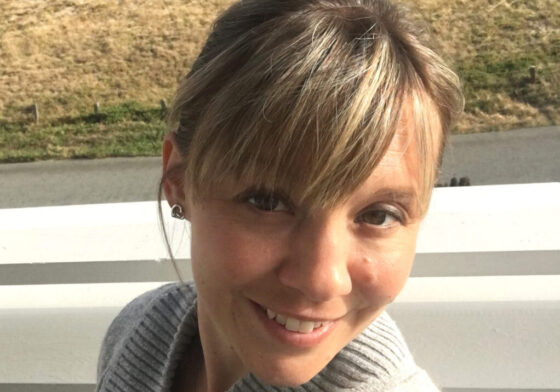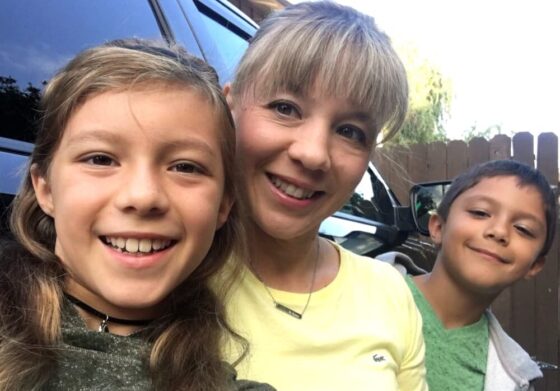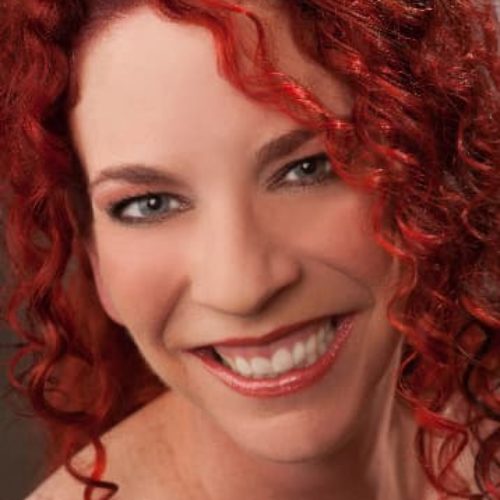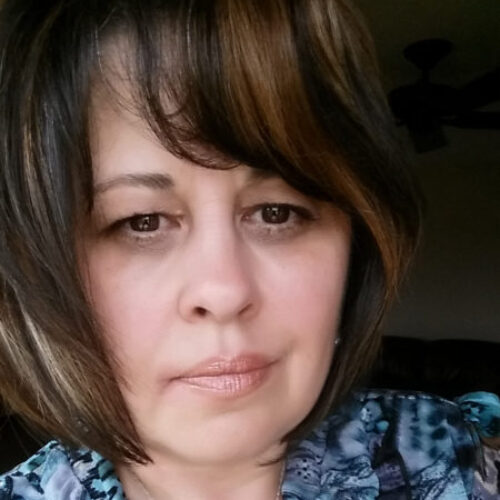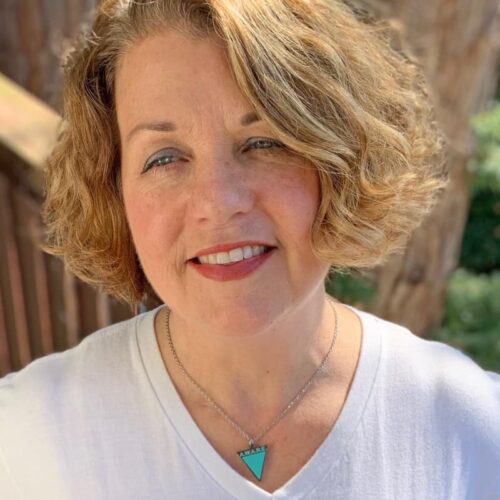At 37 years old I was young, single mother to two wonderful children, ages 6 and 8. I was very healthy and wasn’t expecting that to change.
About one year prior to my diagnosis, I got an IUD. For a two-month span, I noticed that my periods were coming just about every two weeks which is a bit odd.
At first, I didn’t think much of it. Then my periods got a lot heavier, which is uncommon with IUDs. These were the first hints my body gave me that something was wrong.
I called my doctor’s office and they were concerned that my IUD had moved out of place. They scheduled an appointment for me that Saturday to have it checked and do a pap smear.
I was used to those – I had a long 11-year history of abnormal results from my pap smears. But after every abnormal result, my obstetrician would do a LEEP procedure and those results never indicated an issue.
On this day, my doctor suggested we do another pap sample but higher in my cervix. Most pap samples are at the base of cervix which is where 90% of cervical cancers are found. She suggested getting a higher sample because of all the past abnormal results and that I was HPV positive (which I learned that day).
The pap results came back abnormal, which was something I was very used to. I wasn’t worried at all, but when the results from the LEEP procedure came back it was very different than my usual results. I had stage 2 cervical adenocarcinoma and I was in total shock.
Soon after, I went in for my first treatment, which was laparoscopic surgery to remove my fallopian tubes and to relocate my ovaries higher into my abdomen. This was to try and preserve their function.
After this, I went through six weeks of chemotherapy and 28 rounds of external radiation with three rounds of internal radiation. After this exhausting treatment, my doctors told me I was fine and I would be checked in eight months to make sure it was gone. They assured me that the treatment had been very aggressive and the cancer should be gone.
I then began to have a lot of discharge, I was going through multiple pads a day. I was extremely uncomfortable and it was embarrassing. I called both my GYN/ONC and my radiologist who told me that this was normal. They told me my body had been damaged by the radiation and this was the healing process. They said if it persisted for a month to call them again.
After a month passed and the problem was still occurring, I called them again. This time, they told me to wait until the three-month mark, and if it was still happening they would do something then. Surely the discharge would be done at that time.
“I felt like my doctors weren’t listening to me, but I knew that there was something wrong in my body because you know your body better than anybody else.”
After three months the discharge was getting worse so I wanted a PET scan to check for residual cancer. My doctors informed me that I was still too soon out of radiation for the results to be valid. This time they said to wait until the six-month mark and if I still had the discharge they would deal with it at that point.
I felt like I was being a pain to keep calling them, but I was nervous, anxious and my gut was telling me that there was something not right with my body. I felt like my doctors weren’t listening to me, but I knew that there was something wrong in my body because you know your body better than anybody else.
At the five-month mark I went and got a second opinion from a different doctor who was highly regarded in the GYN/ONC field. He read through the over 1,000 pages of my medical records and believed that the discharge was most likely a sign that I had residual cancer.
He recommended a radical hysterectomy to remove any remaining cancer. He sent over his opinion to my normal GYN/ONC and she immediately scheduled the hysterectomy for two weeks later.
During the procedure, it was confirmed that there was in fact residual cancer on my cervix. Thankfully, the surgeon was able to clear the margins and remove all of the residual cancer.
My advice for everyone is to listen to your body. You know your body better than anyone including your doctor. It’s okay to “bother” your doctor if you feel there’s something wrong or even go and get a second opinion. If you know something is wrong you need to act.
At the start of my treatments I was so worried about making doctors mad or bothering them, but I learned I am my body’s best advocate. Now I am not afraid to speak up and tell my doctor over and over again when I know something is amiss with my body.
Symptom
- bleeding between cycles (from light to heavy)
